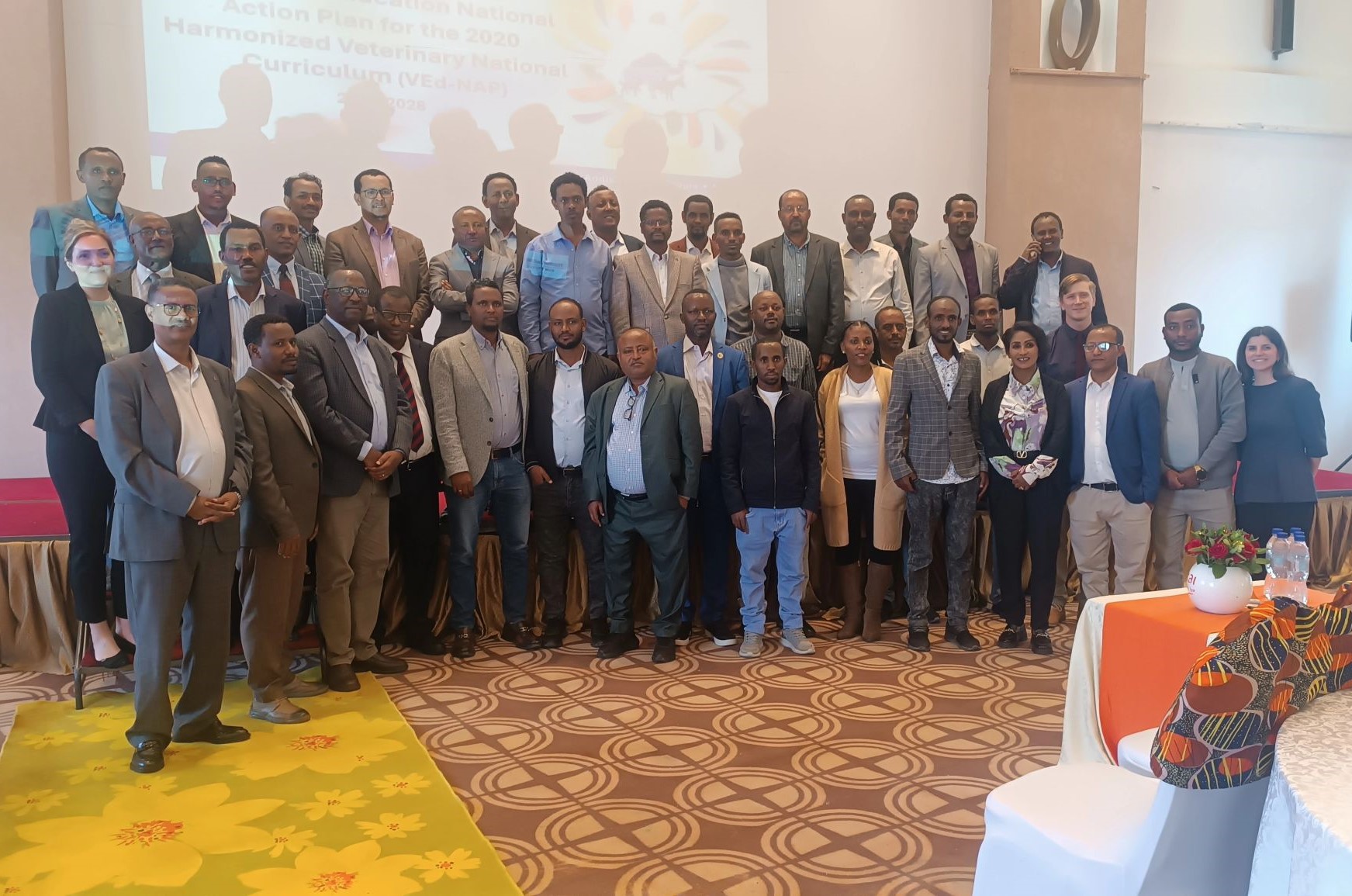The Ohio State University College of Veterinary Medicine and the University of Gondar College of Veterinary Medicine and Animal Sciences organized the Ethiopian Veterinary Education National Action Plan implementation workshop in Addis Ababa aimed at enhancing the 2020 Nationality Harmonized Veterinary Curriculum. The workshop, attended by all 18 veterinary colleges offering Doctor of Veterinary Medicine (DVM) programs in Ethiopia, focused on continuing to improve veterinary education quality by aligning it with World Organization for Animal Health (WOAH) competencies.
In their opening remarks, Kora Tshune, state minister of the Ethiopia Federal Ministry of Education and Asrat Atsedeweyn, president of Gondar University, highlighted the importance of improving the curriculum standards for the DVM program towards producing highly competent graduates. Both appreciated the partnership and leadership of Ohio State and University of Gondar for their continued efforts towards the successful implementation of a nationally harmonized curriculum.
“Strengthening curriculum and meeting Day 1 competencies is critical to build and sustain a high quality global framework that will lead to saving lives of animals and humans,” said Wondwossen Gebreyes, GOHi executive director. “Thank you to Armando Hoet, Amanda Berrian and all the veterinary medicine leadership at our partner institutes, including Achenef Melaku Beyene and Seleshe Woldegebreal, and many more, for your leadership.”
To improve veterinary education curriculum standards in Ethiopia, there was a need to provide a mechanism for veterinary education establishments (VEE) to identify and prioritize interventions and address gaps. To meet those needs, Ohio State’s College of Veterinary Medicine developed the Assessment and Implementation of WOAH Day 1 Competencies methodology, a cyclical, collaborative methodology to help VEEs evaluate their curricula and move toward harmonization with WOAH standards using a systematic approach to ultimately develop and implement an action plan based on the results.
The six phases of the process include: (1) assessment of the proficiency of the VEE’s graduates in Day 1 Competencies using a structured evaluation tool; (2) a systematic curricular review and evaluation; (3) identification and prioritization of interventions through a group problem-solving and prioritization exercise called Focus Forward; (4) design and development of interventions to address identified gaps; (5) curricular implementation; and (6) monitoring and evaluation. The methodology relies upon active involvement of senior students, recent graduates, faculty, instructional staff and employers throughout the process.
The new curriculum being developed in Ethiopia aims to ensure veterinary graduates are equipped with the skills and knowledge to address various One Health issues, including epidemiology, transboundary animal diseases, zoonoses and food safety.
